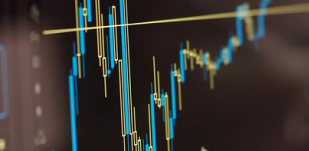Why Are Certain Currencies Given Safe-Haven Status?
Paul Reilly
Chief Commercial Officer
In times of uncertainty investors across the world seek assets with less risk. “Safe-haven” currencies have seen large inflows in recent weeks as the coronavirus pandemic has seen seismic upheaval in the global economy.
Overall, there are a select number of currencies that can hold safe-haven status at different times and for different reasons.
Japanese Yen
The Japanese Yen, is one of the most well known safe-haven currencies despite the country’s poor economic performance over the past two decades. The country has struggled to control its inflation since the 80’s, recorded poor economic growth and also carries a high government debt to GDP ratio. So why is Japan’s currency considered secure?
Whilst more developed and larger economies typically have stronger currencies, the yen tends to soar during increases in risk-sentiment as the country has a long and established track record of net exports. It recorded trade surpluses, meaning it exports more than it imports, every year from 1980 and 2010. This creates a large natural demand for Japanese Yen regardless of the economic environment.
The other factor for Japan as a safe haven currency is its ability to easily service its high government debt. As a mature and wealthy country, there is plenty of domestic wealth and creates a huge natural financier of the government debt with the Japanese residents being huge holders of these bonds. Having such a high domestic demand, means the country is less exposed to global shocks.
Swiss Franc
The oldest and most obvious safe-haven currency would be the Swiss Franc, or coined as the ‘Swissie’ for traders. The Swiss economy is renowned for its world class banking system and they are politically neutral which helps attract investment from investors looking to shield themselves against economic risk. A clear way to gauge demand in a currency is their current interest rate, which for Switzerland is -0.75%, meaning investors pay to hold the Franc and yet demand over the past month has been unprecedented as financial markets feared the worst during the outbreak - a true sign of a safe-haven currency.
US Dollar
Traditionally the US, the world’s largest economy, was deemed another main safe haven. However, this mantle has come in for scrutiny since the 2008 financial crash which subsequently saw US government debt to GDP ratio surge, too quickly for many. Another factor for the dollar’s declining status has been its trade balance. Unlike Japan, it runs a trade deficit, meaning it simply imports more than it exports.
However, being the biggest economy and having the largest financial market along with the most liquid currency, saw the US Dollar re-establish its ‘top dog’ status during the peak coronavirus sell off in March. As we saw at the time, international investors were all in a rush to sell as many holdings as possible, with the primary objective of staying liquid. To achieve this, we saw a flight into the most secure US Dollar securities (government bonds) and subsequently an unprecedented appreciation of the dollar. Certainly an observation worth remembering for any future crises
Newcomers V Has Beens
Beyond this current crisis, safe havens are unlikely to change quickly in the world but a good example of a weakened economic power would be sterling (GBP). Since other economic powers have quickly outgrown the UK, and the UK government and the Bank of England’s balance sheet has declined over time, sterling is no longer seen as a safe currency to hold to shield investors from economic downturns. Looking elsewhere globally, expectations and the importance of the Chinese yuan will continue to grow with the incredible growth that China has seen over the past 15 years. Also, the German economy would normally be considered a safe haven for many of the reasons mentioned above (in particular its net exports record). However, the German Deutschmark is no more and the euro currency represents the aggregate valuation of the eurozone as a whole. Whilst the euro is a relatively stable currency, it cannot be deemed a safe haven in the true sense.
Related Articles
Daily Analysis: GBP/USD Hits 14-Month Lows Amid Severe Economic Uncertainty
Our daily analysis of EUR, GBP and USD.
Read more
Weekly Round-Up & The Week Ahead
Our weekly round-up and a look at the week ahead for EUR, GBP and USD.
Read more
The Rise of B2B Cross-Border Payments
Businesses that wish to protect their overseas markets or expand their international trade, must innovate their payments processes internally, or in concert with a technologically advanced fintech provider. Read on to discover more about the rise of cross-border B2B payments and what your business needs to do to stay ahead.
Read more



